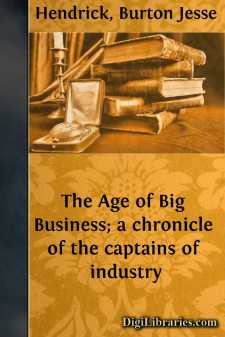Categories
- Antiques & Collectibles 13
- Architecture 36
- Art 48
- Bibles 22
- Biography & Autobiography 816
- Body, Mind & Spirit 145
- Business & Economics 28
- Children's Books 17
- Children's Fiction 14
- Computers 4
- Cooking 94
- Crafts & Hobbies 4
- Drama 346
- Education 58
- Family & Relationships 59
- Fiction 11834
- Foreign Language Study 3
- Games 19
- Gardening 17
- Health & Fitness 34
- History 1378
- House & Home 1
- Humor 147
- Juvenile Fiction 1873
- Juvenile Nonfiction 202
- Language Arts & Disciplines 89
- Law 16
- Literary Collections 686
- Literary Criticism 179
- Mathematics 13
- Medical 41
- Music 40
- Nature 179
- Non-Classifiable 1768
- Performing Arts 7
- Periodicals 1453
- Philosophy 66
- Photography 2
- Poetry 897
- Political Science 203
- Psychology 45
- Reference 154
- Religion 516
- Science 126
- Self-Help 85
- Social Science 82
- Sports & Recreation 34
- Study Aids 3
- Technology & Engineering 59
- Transportation 23
- Travel 463
- True Crime 29
Our website is made possible by displaying online advertisements to our visitors.
Please consider supporting us by disabling your ad blocker.
The Life and Letters of Walter H. Page, Volume I
Categories:
Description:
Excerpt
CHAPTER I
A RECONSTRUCTION BOYHOOD
The earliest recollections of any man have great biographical interest, and this is especially the case with Walter Page, for not the least dramatic aspect of his life was that it spanned the two greatest wars in history. Page spent his last weeks in England, at Sandwich, on the coast of Kent; every day and every night he could hear the pounding of the great guns in France, as the Germans were making their last desperate attempt to reach Paris or the Channel ports. His memories of his childhood days in America were similarly the sights and sounds of war. Page was a North Carolina boy; he has himself recorded the impression that the Civil War left upon his mind.
"One day," he writes, "when the cotton fields were white and the elm leaves were falling, in the soft autumn of the Southern climate wherein the sky is fathomlessly clear, the locomotive's whistle blew a much longer time than usual as the train approached Millworth. It did not stop at so small a station except when there was somebody to get off or to get on, and so long a blast meant that someone was coming. Sam and I ran down the avenue of elms to see who it was. Sam was my Negro companion, philosopher, and friend. I was ten years old and Sam said that he was fourteen. There was constant talk about the war. Many men of the neighbourhood had gone away somewhere—that was certain; but Sam and I had a theory that the war was only a story. We had been fooled about old granny Thomas's bringing the baby and long ago we had been fooled also about Santa Claus. The war might be another such invention, and we sometimes suspected that it was. But we found out the truth that day, and for this reason it is among my clearest early recollections.
"For, when the train stopped, they put off a big box and gently laid it in the shade of the fence. The only man at the station was the man who had come to change the mail-bags; and he said that this was Billy Morris's coffin and that he had been killed in a battle. He asked us to stay with it till he could send word to Mr. Morris, who lived two miles away. The man came back presently and leaned against the fence till old Mr. Morris arrived, an hour or more later. The lint of cotton was on his wagon, for he was hauling his crop to the gin when the sad news reached him; and he came in his shirt sleeves, his wife on the wagon seat with him.
"All the neighbourhood gathered at the church, a funeral was preached and there was a long prayer for our success against the invaders, and Billy Morris was buried. I remember that I wept the more because it now seemed to me that my doubt about the war had somehow done Billy Morris an injustice. Old Mrs. Gregory wept more loudly than anybody else; and she kept saying, while the service was going on, 'It'll be my John next.' In a little while, sure enough, John Gregory's coffin was put off the train, as Billy Morris's had been, and I regarded her as a woman gifted with prophecy. Other coffins, too, were put off from time to time. About the war there could no longer be a doubt. And, a little later, its realities and horrors came nearer home to us, with swift, deep experiences.
"One day my father took me to the camp and parade ground ten miles away, near the capital. The General and the Governor sat on horses and the soldiers marched by them and the band played. They were going to the front. There surely must be a war at the front, I told Sam that night. Still more coffins were brought home, too, as the months and the years passed; and the women of the neighbourhood used to come and spend whole days with my mother, sewing for the soldiers. So precious became woollen cloth that every rag was saved and the threads were unravelled to be spun and woven into new fabrics. And they baked bread and roasted chickens and sheep and pigs and made cakes, all to go to the soldiers at the front."
The quality that is uppermost in the Page stock, both in the past and in the present generation, is that of the builder and the pioneer. The ancestor of the North Carolina Pages was a Lewis Page, who, in the latter part of the eighteenth century, left the original American home in Virginia, and started life anew in what was then regarded as the less civilized country to the south....




